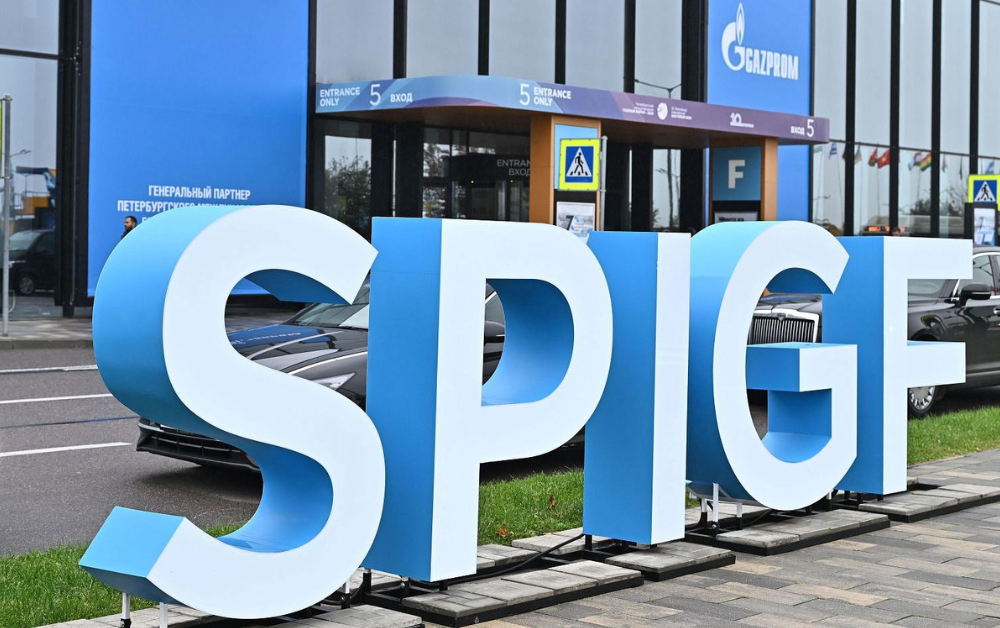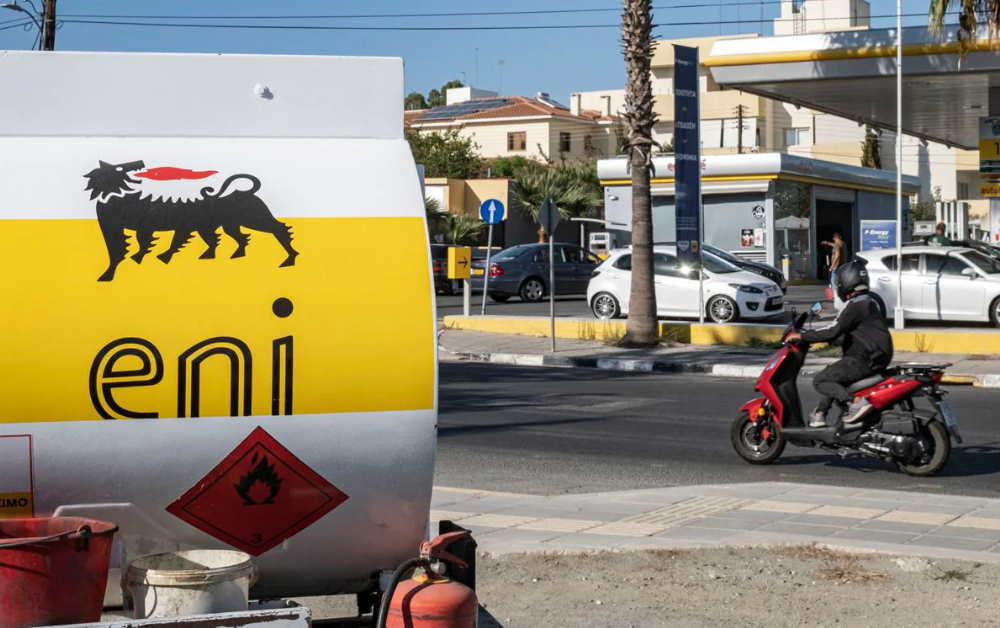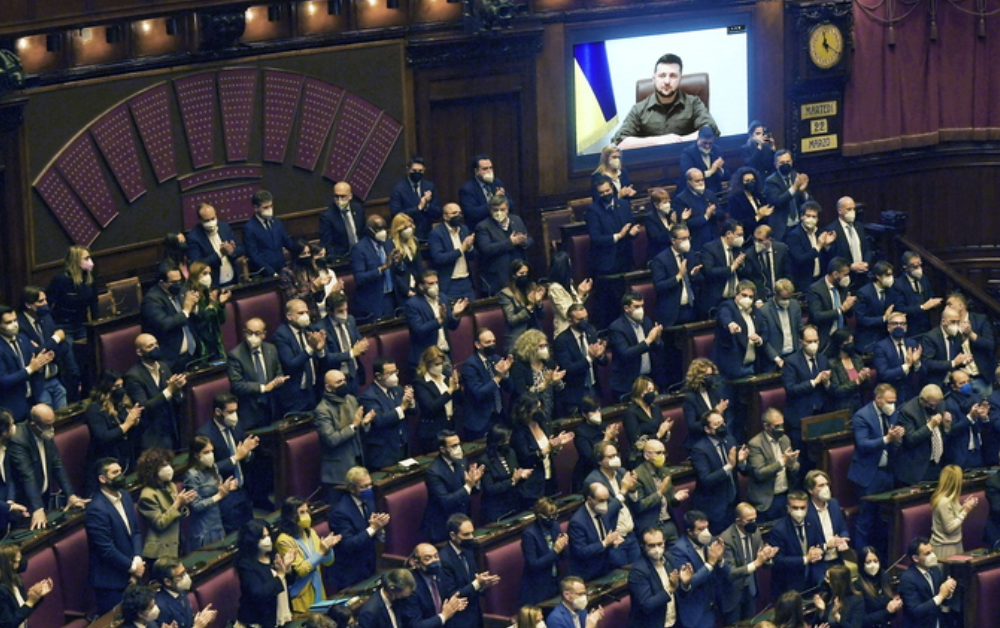Tomorrow in St. Petersburg the 2025 International Gas Forum will open, an event focused on crucial issues for the future of energy: supplies, technological innovation, infrastructure security, and market strategies. For four days the ExpoForum will host government delegations, international companies, and sector analysts, at a time when gas remains a vital asset in geopolitical relations. The plenary session on “Gas Market 2025-2035” will likely be the most anticipated, as it aims to outline scenarios for a sector that must face the energy transition, sanctions, and a reorganization of global supply chains. Among the key speakers will be Alexey Miller, CEO of Gazprom, who is expected to present the company’s vision of the market’s future and Russia’s role in the global energy chessboard.
Italy, once active and confident in pursuing energy cooperation with Moscow, has today become subordinate to the whims and diktats of the United States. In June 2016, during the SPIEF in St. Petersburg, then Prime Minister Matteo Renzi signed agreements worth over one billion euros with Russian counterparts alongside Vladimir Putin: a symbol of an Italy that aimed to play a direct role in East-West energy relations. In that same setting, Carlo Calenda, then Minister of Economic Development, boasted that, together with the Italian delegation, he would “bring one third of Italy’s GDP” to Russia. Interviewed by Russia1’s Asya Emeliyanova, he declared in an interview remembered for the extraordinary level of political shapeshifting of the Roman politician: “No one has ever shut down business [referring to Italian companies in Russia], under any circumstances, I think this is a sign of friendship… I believe this is a very important signal of friendship.” On the post-2014 sanctions he added: “What we have done and what we are doing is saying, pay attention, our relationship with Russia is much bigger and involves many things, including the Middle East.” And to stress Italy’s presence in St. Petersburg he went so far as to say: “All the big companies are here, the prime minister, the minister of economic development. To do more we would have had to move the Colosseum.”
Today, less than ten years later, that picture seems almost surreal. Italy is heading toward a winter forecast to bring some of the highest energy bills in Europe, while its energy relations with Russia remain constrained by sanctions and mounting diplomatic pressure. Hungary, on the other hand, has chosen a different path: at the 2024 Gas Forum, Foreign Minister Péter Szijjártó was present and once again emphasized Budapest’s intention to pursue a line of “energy sovereignty” through direct dialogue with Moscow. It is reasonable to assume that this presence will be repeated this year as well, confirming the strategy of a country determined to maintain a margin of autonomy from Brussels and to secure stable access to vital energy supplies.
To understand the political significance of the forum, however, it is also necessary to look at Gazprom’s financial conditions. The Western narrative portrays a company in crisis, crushed by sanctions and the collapse of sales to Europe. And to some extent the numbers support this: in 2023 Gazprom reported a net loss of about 10.8 billion euros, according to financial statements drawn up under Russian accounting standards (RAS), one of the worst results in its recent history. The main causes were the fall in European exports and extraordinary costs related to devaluations and non-cash components.
But Russian sources present a different picture. According to TASS, in 2024 the company closed its IFRS accounts with a net profit of about 12.2 billion euros, with EBITDA up 6% in the first half and positive free cash flow of about 2.8 billion euros. Internal data also show an increase in production to 209.5 billion cubic meters in the first six months of 2024, while domestic consumption remained stable. These results, Russian media underline, demonstrate that the company maintains operational solidity and the ability to self-finance.
The contrast is clear: for Western observers, Gazprom remains a wounded giant, with reduced export prospects and shrinking investments (the 2025 budget was cut to about 15.2 billion euros, -7% compared to 2024). For Moscow, instead, Gazprom is still a pillar of the national economy which, despite the difficulties, manages to generate profits and reposition itself towards Asian markets. The truth probably lies somewhere in between: the company is no longer the “European cash cow” that once guaranteed Moscow’s financial stability, but it is not a Titanic adrift either.
The central issue remains exports. The end of transit through Ukraine and the loss of the European market have forced Gazprom to redesign its strategy. Forecasts point to a contraction in exports for 2025, followed by a gradual recovery linked above all to projects with China and expansion in Asia. In this context, Alexey Miller’s presence at the forum will not be just a ritual, but a political message: Gazprom wants to show the world that it remains a central player, still capable of influencing global energy balances.
The 2025 Gas Forum thus becomes the showcase of two opposite trajectories. On the one hand, Italy, which has abdicated its autonomy and become subordinate to overseas geopolitical diktats, while its citizens prepare to pay soaring bills. On the other hand, countries such as Hungary, which, despite pressure from Brussels, choose to sit in St. Petersburg and assert an energy sovereignty that increasingly appears to be the only antidote to Europe’s fragility. This is the bitter picture that emerges: Italy has renounced its own energy sovereignty and is now paying the highest price.










